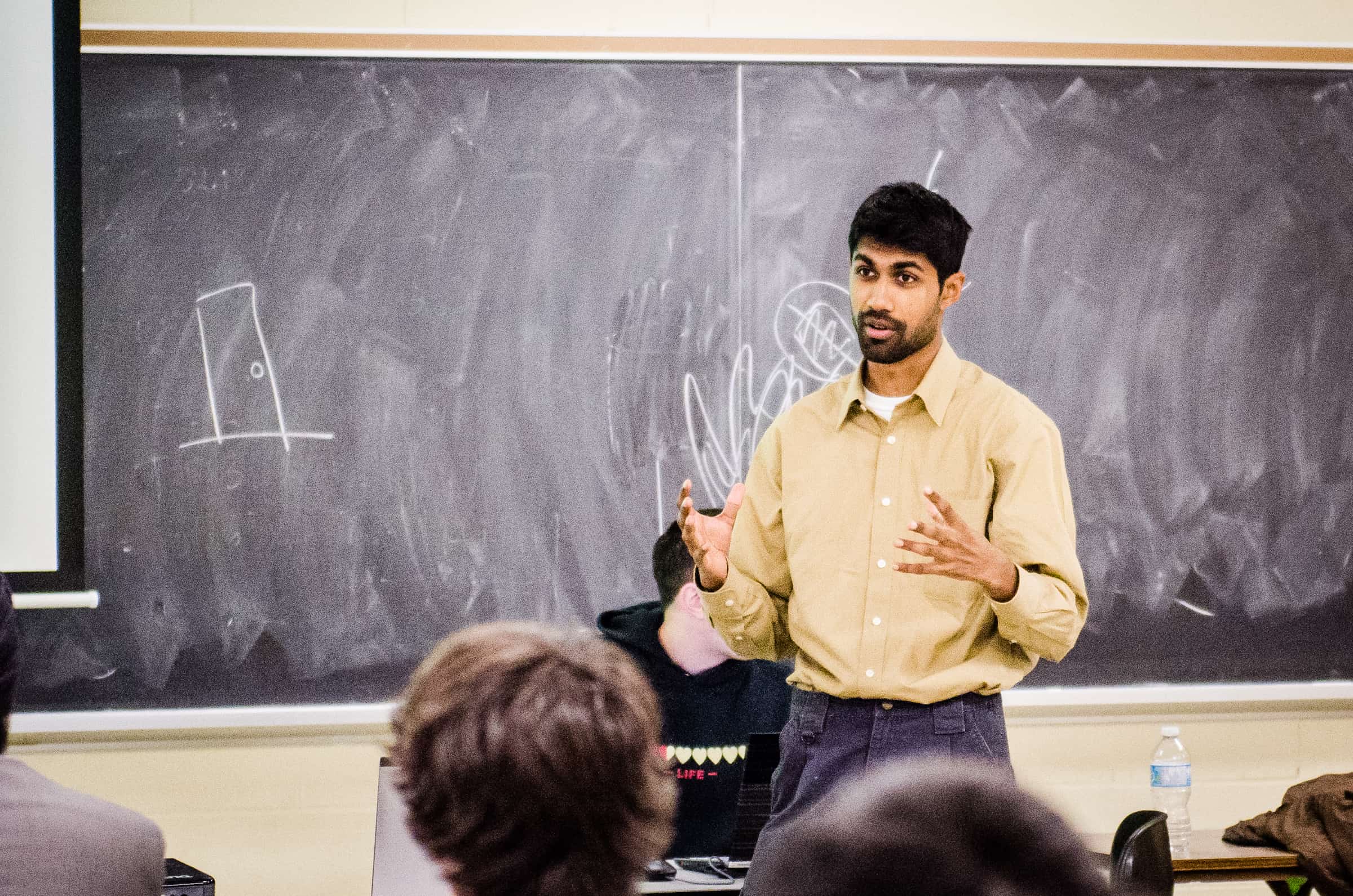This past Thursday, the Engineering Society at U of T held its accountability general meeting, a tradition for the organization, during which students offer feedback to the executive, and potentially recall wayward executives. As the organization moves into its second term, its members have re-endorsed the current executive, which pledged to focus on improvements to the benefits and services the society provides to its constituents.
The six executive members of the Engineering Society stepped into the spotlight in recent weeks with their involvement in efforts to pass electoral reform measures at the University of Toronto Students’ Union. Engineering Society executives (EngSoc) were involved through the collection of proxy votes and bureaucratic manouvering at the UTSU annual general meeting.
In an interview at the accountability meeting, EngSoc president Rishi Maharaj indicated that the executive focus may now be shifting: “We’re not actively doing anything at the moment in regards to UTSU — there are 99 other things we need to do,” said Maharaj.
“The accountability meeting has been primarily focused on the services EngSoc will provide for its students,” said Maharaj.
The meeting began with the adoption of the agenda, followed by presentations given by each of the executive members, emphasizing departmental accomplishments and future goals. Following the presentations came a motion to collect anonymous feedback on the officers. The executives were asked to wait in the hall outside as the meeting’s chair proceeded to go through the motions of recalling each officer from his or her post.
With less than 50 engineering students present, the group fell several votes short of quorum. As a result, any recall vote that did succeed would not technically be valid. Each motion ultimately became a defanged tool for feedback, in which the strengths and weaknesses of each officer were discussed by members.
The meeting was chaired by Mauricio Curbelo, the elected chair of EngSoc who previously served as an officer with the organization. The six executive members up for recall included president Rishi Maharaj, vice presidents Pierre Harfouche, finance; Yerusha Nuh, communications; Matthew Lattavo, academic; Anton Klunko, external; and Ishan Gupta, student life.
Several students voiced concerns about vice-president, external Anton Klunko, describing a perceived lack of meaningful contributions. There was a motion set forth for a mock impeachment vote, which was enacted with disputed results, with many abstaining from voting.
The accountability meeting was also an opportunity for members to air other concerns about the Engineering Society’s previous term.
One student felt that Harfouche’s motion requesting the chair of the UTSU annual general meeting, Ashkon Hashemi, recuse himself, was “embarrassing for the EngSoc.” Others voiced a general concern over the viability of some of society’s slated projects.
In terms of the external representation of the society, many members felt Maharaj had done a favourable job, especially in regards to the initiatives related to the UTSU, such as the AGM, and in faculty-specific initiatives.
In the months ahead, the executive has indicated that they plan to implement a wide range of services for engineering students, ranging from past exams to databases to fair class representation.
Though there had been concerns regarding the involvement of the engineering students within the senior ranks of the society, vice-president, communications Nuh suggested that student interest was not as important for this year’s EngSoc as ensuring that its services were widely available.
“I think that’s actually fine, because not everyone’s into government, but everyone uses the services,” said Nuh. “So that’s been the focus of our year especially, to get the services out there, instead of being like ‘EngSoc does this, this and this’ while not delivering the services.”
Although executives hinted that more UTSU reform efforts could be on the horizon, nothing has yet been solidified.
“There’s nothing official that’s been said on our end on what to do at the meeting, or what kind of reforms to push forward now,” said Harfouche. The UTSU has called another annual general meeting for January 2013.
“I do not have any confidence that those [reforms] are going to be ratified by the Board of Directors and subsequently going to be put on the agenda, so I don’t want to waste a huge amount of time drafting a massive motion that’s not going to go anywhere,” said Maharaj.
There will also be an EngSoc board of directors meeting within the next week that will ratify the official position EngSoc will be taking in regards to the UTSU. Until then, the society will continue to focus on its service-focused agenda.


